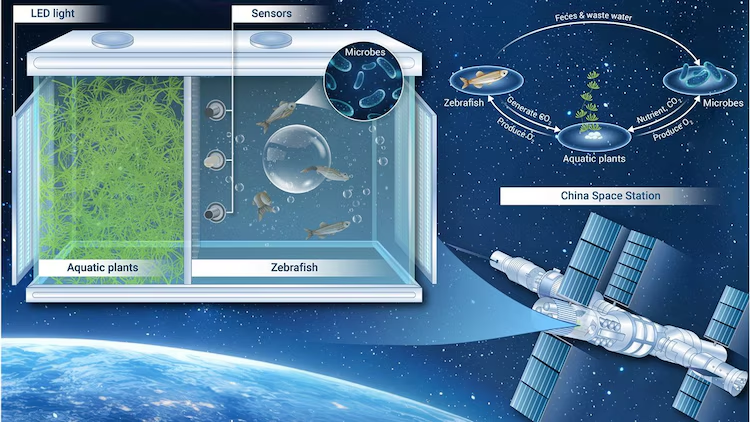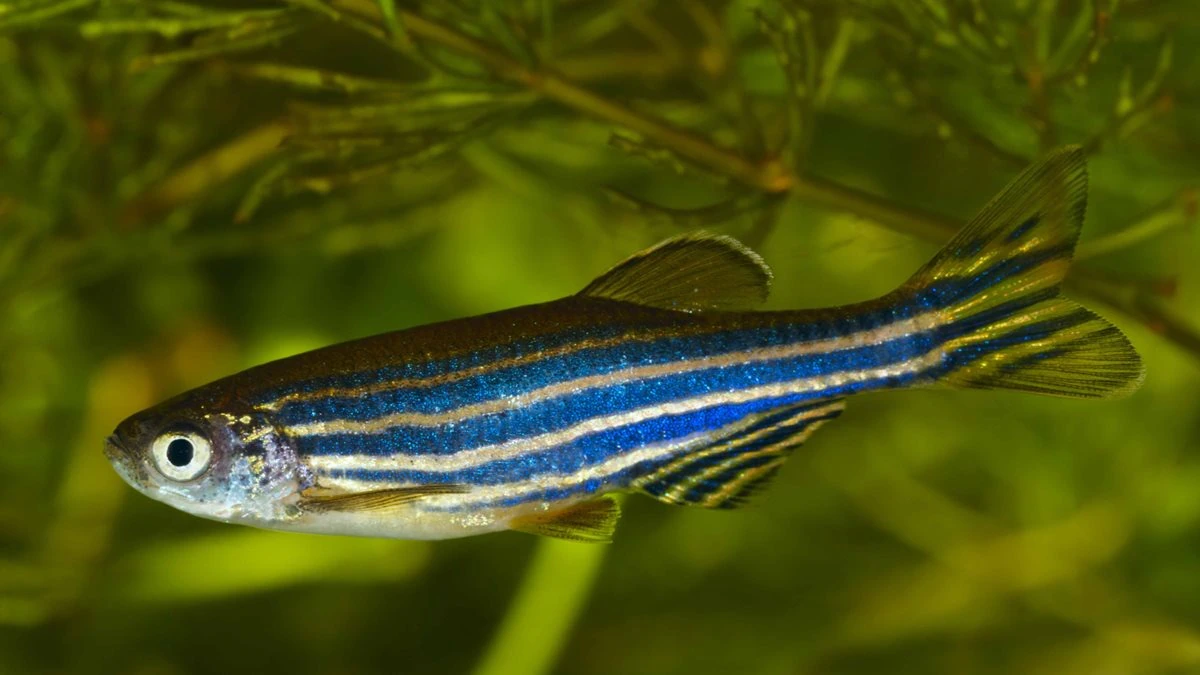In a remarkable leap for space research, Chinese scientists aboard the country’s space station have successfully completed an Zebrafish Experiment.
The experiment, part of the Shenzhou-18 mission, set a new record in space ecological studies, as four zebrafish completed their entire life cycle, including growth, development, and reproduction, in the unique environment of space.
This success not only marks a significant milestone for China’s space exploration efforts but also paves the way for long-term space habitation and self-sustaining ecosystems in space.
The Groundbreaking Experiment: Zebrafish in a Closed Ecosystem
On November 4, 2024, Chinese scientists achieved an extraordinary milestone when the zebrafish aboard the Tiangong Space Station completed their full life cycle in space. The experiment was conducted within a closed aquatic ecosystem that housed four zebrafish, marking a breakthrough in how life can be sustained in space under microgravity conditions.
Over 43 days, the fish grew from larvae into fully developed adults and even reproduced, demonstrating the ability of aquatic life to thrive in space.
Zebrafish were selected for this experiment due to their rapid development and genetic similarities to humans, making them ideal candidates for space biology studies. The small, transparent fish mature quickly, allowing researchers to observe the entire life cycle in a short period, a critical factor for conducting experiments in the limited time available on space missions.
Furthermore, zebrafish are already commonly used in biological research on Earth because of their genetic and physiological characteristics that mirror those of humans.
Read : Not Only in Population, India Surpassed China in Diabetic Population Too
In this groundbreaking experiment, scientists maintained a stable aquatic ecosystem in a controlled environment aboard the space station. This closed system included a water filter, oxygen supply, and an automatic food dispenser, which allowed the fish to survive and thrive in the otherwise hostile conditions of space.
Read : “Elon Is Going to Be the Biggest Loser”: Entrepreneur’s Advice to Musk Choosing China Over India
The success of the zebrafish life cycle in space underscores the potential for creating sustainable life support systems, which are vital for long-duration space missions to Mars or other distant destinations.
The Significance of the Success: Implications for Long-Term Space Habitation
The successful completion of the zebrafish life cycle in space has far-reaching implications for the future of space exploration, particularly concerning long-term space missions and potential human habitation on other planets.
As space agencies around the world increasingly turn their focus toward establishing sustainable colonies beyond Earth, understanding how ecosystems can function in space becomes a critical aspect of planning. This experiment offers valuable insights into how biological organisms, including humans, might be able to live and reproduce in space over extended periods.

Space stations, such as China’s Tiangong and NASA’s International Space Station (ISS), have long served as laboratories for studying the effects of space travel on living organisms. However, studies on long-duration missions have often been limited by the challenges of maintaining ecosystems in space.
With this new experiment, China has made a significant leap forward by successfully demonstrating that it is possible to maintain a self-sustaining, closed ecosystem, something that could be crucial for life support on future space stations or planetary bases.
The experiment also sheds light on the broader question of how life can adapt and evolve in microgravity conditions. The zebrafish experiment is a step toward understanding the biological changes that occur when organisms are exposed to the unique environment of space. In future space exploration, this knowledge could prove essential in ensuring that humans and other life forms can not only survive but thrive in space.
This experiment also strengthens China’s position as a global leader in space exploration. As the country continues to develop and launch advanced space missions, its growing capabilities in space science are becoming increasingly apparent. The success of the zebrafish experiment is yet another testament to China’s commitment to pushing the boundaries of space research and advancing our understanding of space biology.
How This Experiment Will Shape Future Space Missions
Looking ahead, the success of the zebrafish experiment is likely to have a profound impact on the design of future space missions. As humanity aims to establish long-term settlements on the Moon, Mars, and beyond, the ability to create sustainable ecosystems will be a key factor in ensuring survival.
The lessons learned from this study can inform the development of life support systems that will be essential for future space stations and extraterrestrial colonies.
For instance, understanding the biology of aquatic organisms in space can help scientists design more efficient life support systems that recycle resources, such as water and oxygen, and maintain stable ecosystems for human consumption and health.
The findings from the zebrafish experiment could also play a role in improving human health during long-duration space missions by highlighting the potential effects of microgravity on biological systems.

Moreover, as the Chinese space program continues to grow, it is likely that future experiments will involve more complex ecosystems, including the cultivation of plants and other organisms, to create a fully functional and sustainable environment in space. The success of the zebrafish experiment has opened the door for such developments, demonstrating that closed ecological systems can be maintained in space.
The zebrafish experiment also sets the stage for further research into the potential for space-based agriculture. By understanding how life forms can adapt and thrive in space, scientists can begin to explore how crops might grow in low-gravity environments, ensuring that astronauts have access to fresh food on long journeys.
Additionally, insights into aquatic life cycles could help refine the designs of aquaponic systems that could be used to grow both fish and plants in space.
This achievement also aligns with China’s broader goal of advancing its space exploration ambitions. The country has made significant strides in recent years, with the successful launch of its Chang’e lunar missions and the Tiangong space station. The successful zebrafish experiment further establishes China as a key player in the future of space exploration.

